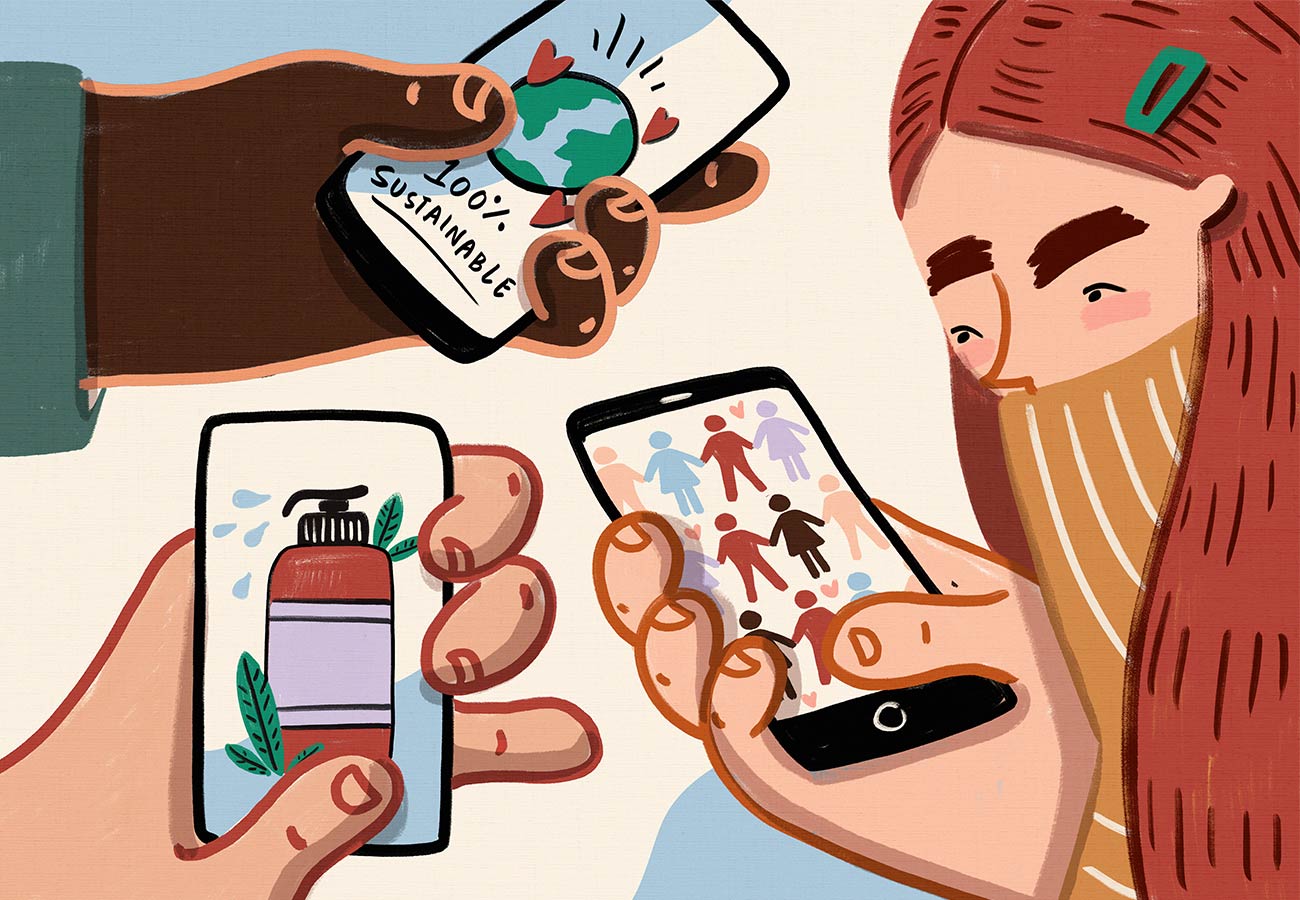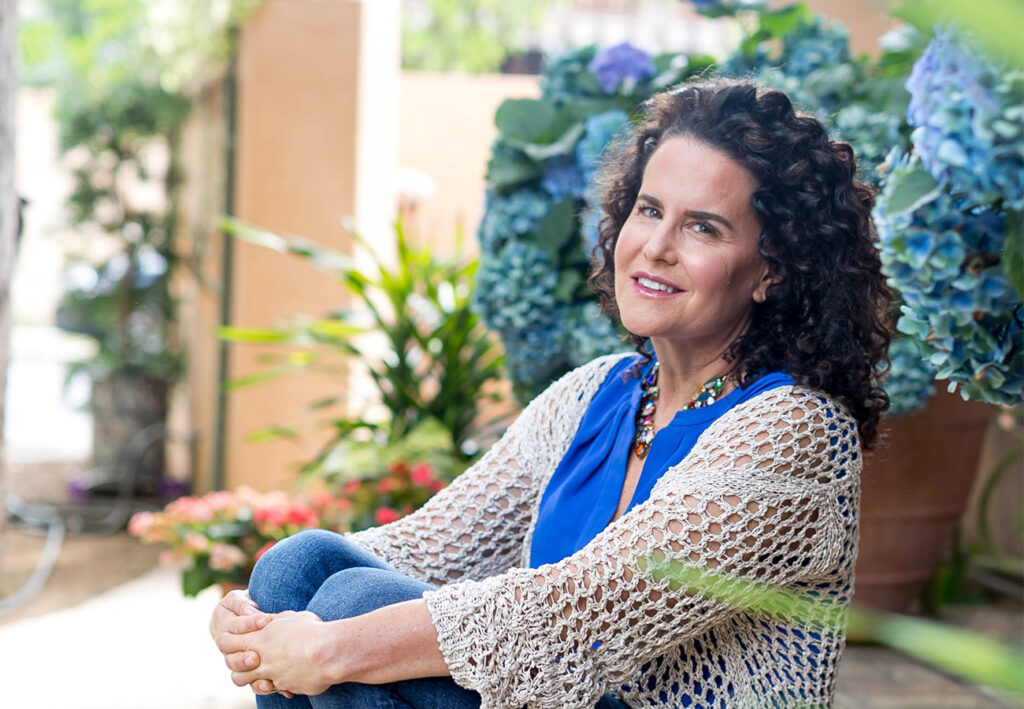For many business owners, it’s important to build something more than just a brand that sells products in the transactional sense. They want their customers to feel connected and supported. “As a father of two young girls, a cofounder, and a millennial, I understand the importance of building a brand that really stands for something,” says Arnaud Plas, Cofounder and CEO of Prose. Having a clear, public mission allows Prose, and other like-minded companies, to stay humble and use their businesses to contribute to everlasting change and to have a positive impact on the future.
To hold themselves legally accountable, brands become Certified B Corporation to show their commitment to their mission that goes beyond selling a product. “The foundation we’ve built to guide our business helps keep us honest and allows us to have a positive effect on everything from our sustainable ingredient sourcing and manufacturing processes to our internal diversity and inclusion commitment,” says Plas.
For B Corps, that business structure is actually tied to a legally-bound commitment through a nonprofit third party, which requires companies to meet a rigorous checklist of items ranging from sustainability to how they treat their employees before they can receive the certification. Think: Fair Trade for non-coffee companies. Like other B corporations, Prose looks at their business impact on the environment, the community and their employees. “Rethinking traditional beauty standards and age-old practices that don’t benefit the consumer and cause extreme harm to the planet is what Prose was founded upon,” says Plas. By producing custom products, Prose is helping to put an end to the excessive waste in the beauty industry, which is at 20 to 40% thanks to mass production. “Because we’re completely custom, we’re eliminating the need to produce millions of units that could potentially sit on store shelves for months on end. We know that 100% of what we make is being used. Not only that, it’s fresh for optimal performance,” Plas says. “It’s also allowed us to localize our manufacturing and keep jobs in the US. In addition, we ensure that all of our ingredients are ethically sourced and we are carbon neutral.”
Sustainability and giving back to the community are key pillars of mission- driven brands. Also top of mind is health and clean beauty, an ethos that brands have rallied around. Many have updated their own formulas and some go even further, advocating for larger industry and nationwide changes. “Simply put, our health matters,” says Lindsay Dahl, SVP of Social Mission at Beautycounter. “The US has not passed a major federal law governing the beauty industry since 1938. The law that does exist is only one and a half pages long and allows for harmful or questionable ingredients to be used in the products we use every day. At Beautycounter, we are dedicated to safety, which is why we created our Never List of over 1,800 potentially harmful ingredients that we promise never to use in our formulas. Beauty should be good for you and accessible to everyone.”
Since Beautycounter launched seven years ago, they’ve been advocating for safer beauty laws in the US and Canada. “We’ve sent over 175,000 emails, 1,600 phone calls and held over 2,000 meetings with lawmakers urging them to support cosmetic reform,” Dahl says. “We have helped pass over eight clean beauty laws in the US and are currently working on 11 other pieces of legislation,” Dahl says.
Spreading the word that natural and clean ingredients are truly more than skin deep is personal for Eminence Organic Skin Care, a brand committed to exclusively using natural and organic ingredients. The homemade, natural products dreamed up by Attila Koronczay’s mother and grandmother (both estheticians) became the basis of the brand he and his brother, Boldijarre (also an esthetician), founded when they moved from their hometown of Budapest to Vancouver.
Eminence strives to be much more than a skin care company. “We are dedicated to bettering lives, educating people about a healthy, organic lifestyle, and giving back through charitable initiatives,” says Attila Koronczay, General Manager of Eminence Organic Skin Care. In 2013, stemming from their belief in nourishing the body inside and out, they started the Eminence Kids Foundation, providing organic meals to seriously ill children receiving care in hospitals and long-term care facilities worldwide to help their recovery. “Boldijarre is a survivor of a rare form of childhood leukemia,” Koronczay says. “While he was undergoing treatment, he was fed organic and biodynamic foods by our mother and grandmother, and we believe this was instrumental to his ability to beat cancer, never relapsing to this day. We’ve passed a milestone of 100,000 organic meals served.”

In an age where we all want our purchases to have an impact, it’s important to consider how they touch the people around us. Many modern brands have built the foundation of their company around contributing to the social impact on their community, their customers, and the people in their workplace.
When David Heath, Cofounder and CEO of Bombas, learned in 2011 that socks are the most requested clothing item at homeless shelters, he wanted to do something about it. Back then, the give-back business model was gaining traction, so he and his co founders established the brand’s mission to donate one pair for every pair purchased. “We knew that in order to donate a lot of socks, we’d have to sell a lot of socks, and to do that, we’d have to create something better than anything else on the market,” Heath says. “We spent two years on research and development to create the most comfortable socks ever. Supporting those in need, through giving back and volunteer efforts, is the lifeblood of Bombas and the reason why our business exists— it’s what drives us and continues to be a primary focus for everything we do.” To date, Bombas has donated over 35 million socks and T-shirts—and counting—and every item is of the same quality as those created for paying customers.
Often what we buy has an emotional connection to it—just think of the feeling your favorite cozy sweater evokes or the mood lift a great hair day brings. Brands that can tap into similar sentiments bring an element of human touch. “At Prose, we understand that hair can be an emotional topic for some. It can be tied to an individual’s identity and is oftentimes a direct link to one’s heritage and culture,” Plas says. He references a story highlighted in their “Down to the Root” content series about Lex, a Columbian-Greek-American, who went against the norm of her culture and cut her long brown hair into a platinum blonde bob. Her story conveys the importance of hair in Colombian culture, how people misinterpret her identity simply based on the color and look of her hair and how she had to overcome that initial struggle. “Knowing her culture is so important to her. It’s a beautiful and powerful story,” he says.
It all comes full circle. Caring about the larger community has an impact in the internal workplace as well. In making customizable products that work for all hair types, Prose naturally celebrates diversity. “This has and always will be a top priority for Prose, both internally and externally,” Plas says. “We don’t believe people should be stereotyped and segmented into one box, which is why we offer truly custom, 100% unique products. The same applies to our own workforce. We want to have a diversified employee base but it’s not about filling a quota; it’s an ongoing process.”
Ultimately, these brands know they have a voice and that it’s their duty to use it to make a difference. “We strive to use our platform to highlight causes and charities that are doing good for our community and the planet,” Plas says. “It’s important to continue to amplify the good work of these organizations and support our communities any chance we get. It’s just the beginning.”





